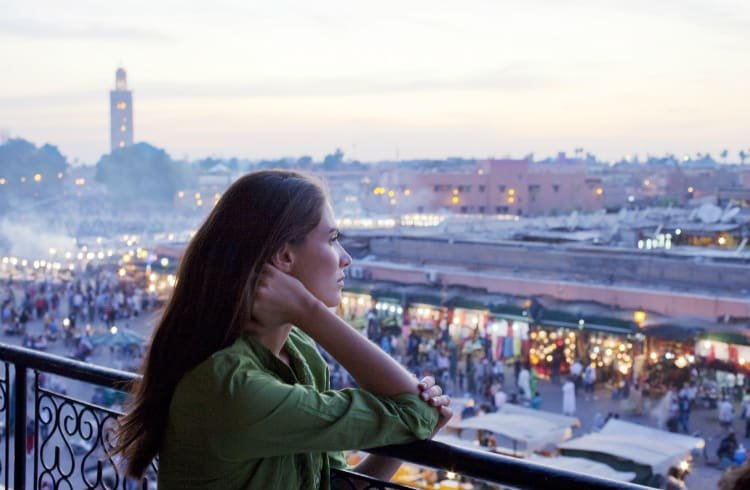When planning a trip to Morocco, questions about safety often arise. With its captivating souks, historic medinas, and expansive deserts, Morocco is a treasure trove for travelers. However, understanding the safety landscape is critical for a well-informed and enjoyable visit. This detailed article explores various aspects of safety in Morocco, supported by recent statistics, expert insights, and firsthand accounts from both locals and tourists. So, is Morocco safe? Let’s dive into it.
Keywords: Morocco safety, travel safety, political stability Morocco, crime rates Morocco, tourist safety, health and sanitation Morocco, women’s safety Morocco, transportation safety Morocco, food and water safety Morocco, Moroccan healthcare, terrorism concerns Morocco, Moroccan travel tips, Moroccan culture, Morocco tourism, travel advice Morocco, safety tips Morocco, Morocco travel guide, Moroccan customs, Moroccan environment
Political Stability and Governance
Morocco, geographically situated in North Africa, is bordered by the Atlantic Ocean and the Mediterranean Sea, with land borders with Algeria and Western Sahara. Unique among its regional peers, Morocco boasts a stable political environment under a constitutional monarchy. This stability is largely credited with contributing to a safer experience for both residents and visitors.
**Expert Insight:** Dr. Ahmed Ezzari, a political science professor at the University of Rabat, notes, “Morocco’s ability to maintain political stability amidst the regional turbulence is a crucial factor in sustaining a secure environment for its citizens and visitors alike.”
Crime Rates and Personal Safety
In general, Morocco is perceived as a relatively safe country, particularly when compared to some other North African nations. Petty crime, such as pickpocketing and scams, is more common in crowded areas and popular tourist spots. However, violent crime against tourists is rare.
**Tourist Tips:** Areas such as the medinas in Marrakech, Fez, and Casablanca, are renowned for their bustling marketplaces but might be hotspots for pickpockets. Common sense precautions, such as avoiding overly crowded places or not displaying valuable items, can greatly mitigate risks.
Terrorism Concerns
As with many countries, terrorism is a concern. Morocco has faced sporadic terrorist threats. However, the Moroccan government has made substantial efforts to counteract these threats through robust security measures and international cooperation.
**Good to Know:** Enhanced security checks at airports and major transport hubs are routine. Dr. Hisham Benaissa, an expert in Middle Eastern studies, asserts, “The increased visibility of security personnel serves as both a deterrent and a reassurance, significantly lowering the likelihood of terrorist incidents.”
Health and Sanitation
Healthcare in Morocco is relatively accessible in urban centers. Major cities like Casablanca, Marrakech, and Rabat have hospitals and clinics with modern facilities. However, access to healthcare can be more limited in rural and remote areas.
**Travel Advice:** It is advisable to have travel insurance that covers health-related issues, including medical evacuation. Carrying basic medications and making sure all routine vaccinations are up to date is crucial.
Women’s Safety
Women traveling alone must remain vigilant, as societal norms can be different from Western countries. While Morocco is progressive in many ways, some conservative attitudes remain prevalent, particularly in more rural areas.
**Women Travelers’ Experience:** Sarah Jensen, a frequent traveler to Morocco, shares, “While I felt generally safe, adopting a conservative dress code and being aware of cultural norms helped me navigate interactions more smoothly.”
Transportation Safety
Transportation in urban areas and between major cities in Morocco is generally safe. The country’s well-maintained rail network and reliable intercity bus services offer efficient modes of travel. However, rural roads can be less maintained, posing potential hazards.
**Driving Conditions:** Tourists who choose to rent vehicles should be cautious and understand local driving customs. Road conditions can vary, and traffic rules are not always strictly adhered to.
Food and Water Safety
Sampling Moroccan cuisine is a highlight for many travelers. While street food is tempting, it’s essential to prioritize hygiene. Tap water in Morocco is not always safe for drinking, and it is recommended to stick to bottled water.
**Culinary Precautions:** Eating at established restaurants and ensuring food is freshly prepared can reduce the risk of foodborne illnesses. Watching where locals eat can be a good indicator of safe dining venues.
Conclusion: Weighing the Pros and Cons
In conclusion, Morocco generally offers a safe travel experience, particularly for those who take standard precautions. Awareness and preparation are your best allies. Whether wandering through ancient souks, hiking the Atlas Mountains, or exploring the Sahara, understanding and respecting local customs can significantly enhance your journey.
**Final Note:** Morocco’s unique blend of African, Berber, and Arab cultures provides a rich tapestry for exploration. By balancing adventure with mindfulness of safety, travelers can have a rewarding and unforgettable experience.

